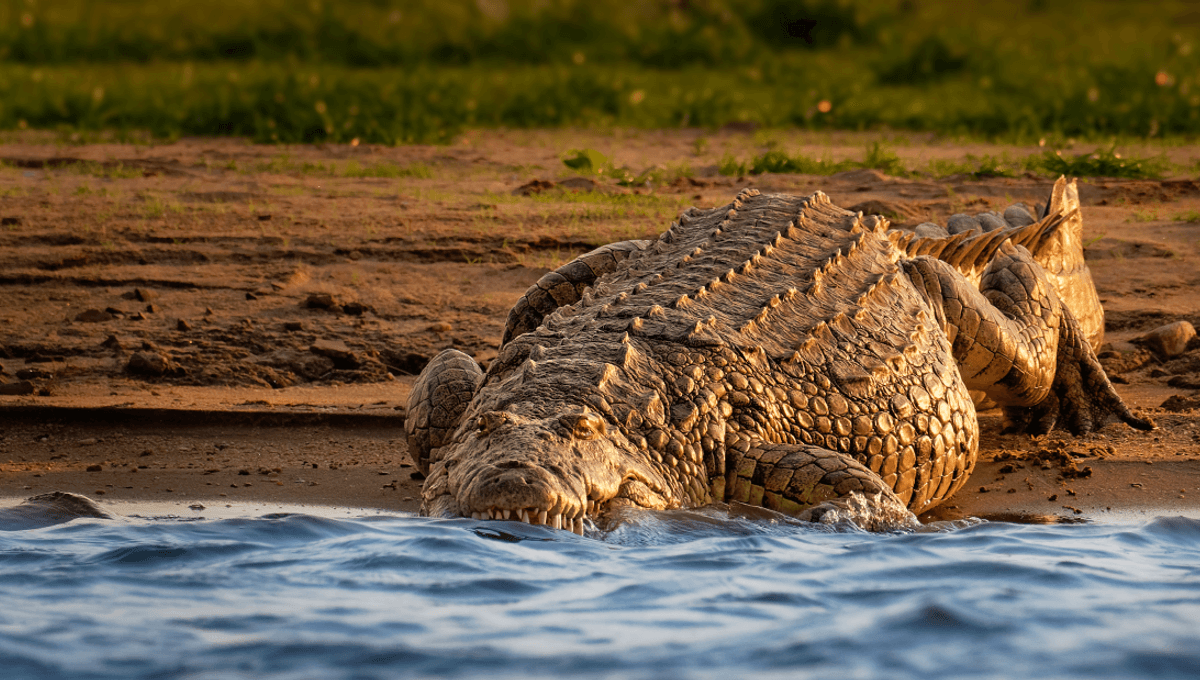
Crying infants may attract Nile crocodiles, according to an eyebrow-raising new study that found these predatory reptiles are well attuned to the tearful cries of some primates. Having been a threat to the human lineage since it first developed, it’s entirely possible the squall of babies may represent attractive stimuli for these massive meat eaters.
The research exposed Nile crocodiles (Crocodylus niloticus) to a range of cries from bonobo and human infants to see how their responses changed depending on the nature of the cry. If you’ve ever wanted to break down the cacophony of sound that is a screaming infant, they characterize the acoustic features into three main categories: harmonicity, spectral prominences, and deterministic chaos, which would make a great band name.
The results showed the crocodiles were sensitive to distress encoded in cries even among vertebrate species that are very distant relatives. However, when the same experiment was repeated with human subjects, a curious finding emerged.
“[C]omparison of these results with those obtained with human subjects confronted with the same stimuli further indicates that crocodiles and humans use different acoustic criteria to assess the distress encoded in infant cries,” explained the authors. “Interestingly, the acoustic features driving crocodile reaction are likely to be more reliable markers of distress than those used by humans.”
As for why a crocodile might respond to the cries of hominids, the behavior isn’t without precedent among these mighty reptiles.
“It is known that adult crocodiles are attracted to the distress calls of their young,” explain the researchers. “Crocodilian females – and males in some species – come to provide parental assistance in case of attack by a predator. However, adult crocodilians do not always show care for the young, and cases of cannibalism are regularly observed.”
Hey, no parent’s perfect.
Young wailing crocodilians actually share some acoustic features with crying hominid infants, but there may be a darker motivation behind a crocodile’s attraction to a screaming baby. The researchers observed some croc participants responding to the sound with an underwater approach, something that’s typically a predatory strategy.
Other crocodiles went right ahead and bit the speaker, but in some cases (mostly involving females) the researchers say it can’t be entirely ruled out that the response might have been driven by parental care instinct. So, when choosing a crocodilian babysitter, you’ve got to be really selective.
Beyond informing responsible childcare choices, the study also has interesting implications for the evolution of humans and crocodiles in close proximity to one another.
“[B]y showing that adult Nile crocodiles are attracted to the cries of hominid babies, our study suggests that these large predators may have been a danger to the human lineage throughout its evolution,” concluded the authors. “The Nile crocodile was indeed an abundant species in the African cradle where the human lineage developed.”
“Since the cries of babies of all species forming the human lineage probably shared acoustic characteristics with the cries of present-day human babies, they probably always represented attractive stimuli for crocodiles.”
Never smile at a crocodile, and definitely don’t cry either.
The study is published in Proceedings Of The Royal Society B: Biological Sciences.
Source Link: Crocodiles Sense Distress In The Cries Of Human Babies, And It's Attractive